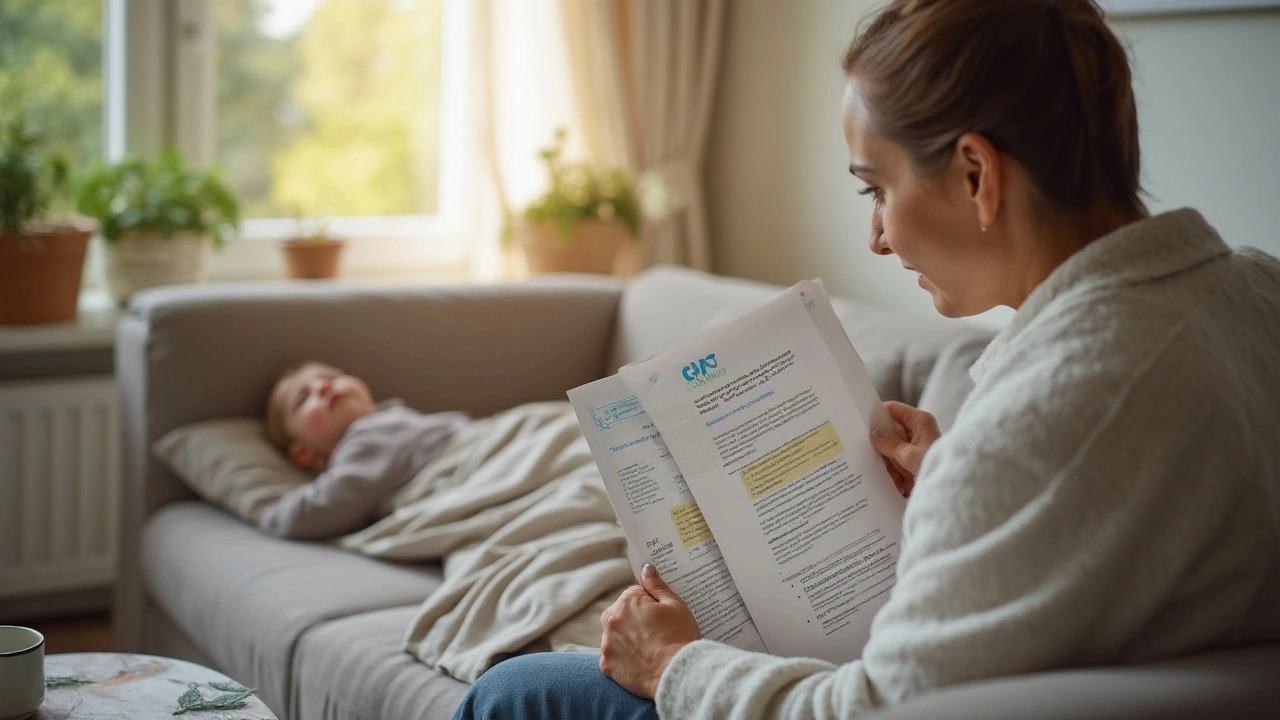Chickenpox: Symptoms, Treatment & Prevention
One blister can make you contagious before you even notice the rash. That’s why quick recognition matters. Chickenpox (varicella) is common, mostly mild in kids, but can be serious for babies, adults, and people with weak immune systems. Here’s a clear, no-nonsense guide to what to watch for and what to do.
How chickenpox shows up
It usually starts with fever, tiredness, and a headache, then a red spotty rash appears within 1–2 days. The rash turns into itchy blisters, then scabs over in about a week. New spots can keep appearing for several days, so you may have blisters in different stages at once.
Kids often have milder illness than adults. If you’re pregnant, newborn, or have a weakened immune system, symptoms can be worse and you need medical advice fast.
Treatment & home care
Most healthy kids get better at home. Keep fever down with paracetamol (acetaminophen). Don’t give aspirin to children with chickenpox — that raises the risk of Reye’s syndrome. For itchy skin, try calamine lotion, cool baths with baking soda or oatmeal, and mittens for babies to prevent scratching.
Antiviral drugs like acyclovir can help, but they work best when started within 24–48 hours of the rash appearing. Doctors usually prescribe them for adults, pregnant women, newborns, or people with other health problems. If someone is severely ill, they may need antiviral treatment in hospital.
If you see high fever, trouble breathing, very bad headache, confusion, stiff neck, or rapidly spreading skin infection, get medical help right away. Those signs can mean complications like pneumonia, encephalitis, or bacterial skin infection.
Prevention and vaccination
Vaccination is the best protection. The two-dose varicella vaccine cuts the chance of getting sick and makes cases much milder if a vaccinated person does catch it. Most countries give the first dose in early childhood and a second dose later. Adults who never had chickenpox or the vaccine should consider vaccination — especially health workers and people living with newborns.
If someone exposed to chickenpox is at high risk (pregnant person, newborn, or immunocompromised), doctors may use varicella-zoster immune globulin (VZIG) or start antiviral drugs to reduce risk of severe disease.
How long are you contagious? From about 1–2 days before the rash appears until all blisters have crusted over — usually around 5–7 days after the rash starts. Keep kids home from school or daycare until fully crusted, and avoid close contact with high-risk people.
Last practical tip: if you’re unsure whether an itchy rash is chickenpox, call your doctor or local clinic before visiting. They can advise whether testing or urgent care is needed and how to avoid spreading the virus to others.

Famciclovir for Chickenpox: How Effective Is This Treatment Option?
Famciclovir is an antiviral drug sometimes discussed as a treatment for chickenpox, but is it truly effective in managing symptoms or speeding up recovery? This detailed article digs into what current studies say, compares famciclovir to other common treatments, and unpacks who might benefit most. Expect reliable facts, tips for safer recovery, and practical info to help you or a loved one make the smartest choices when facing chickenpox.
More Detail